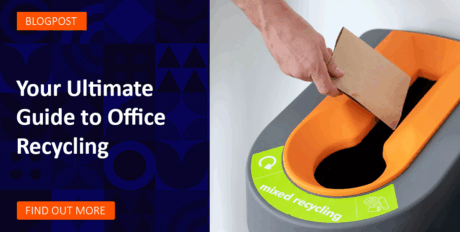Contact us today for your Free Quote
Summer has arrived, and many people have already made their holiday plans, ready to enjoy clear skies, warm days, and long, lazy evenings. For most, it’s the perfect season to spend time with children, family, and friends, thanks to the extended school break and the abundance of outdoor activities to enjoy.
To make your summer even more sustainable, here are some environmental friendly activities to keep your little ones entertained until the school gates reopen.
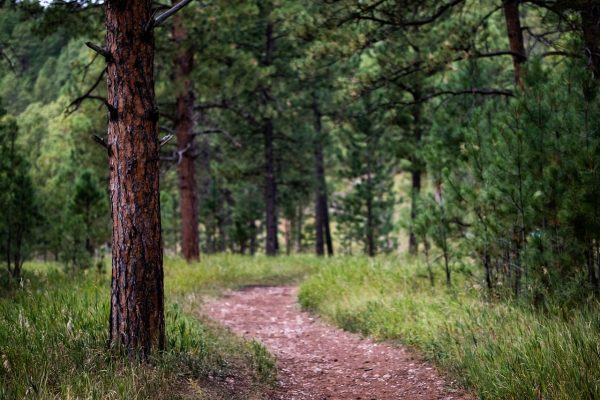
Explore Local Nature Trails
Discovering local nature trails is a wonderful way to connect with the environment and get some exercise. These trails offer a chance to teach children about local flora and fauna, fostering a deeper appreciation for nature. Equipped with a field guide, you can turn your walk into an educational adventure. Encourage children to identify different plants, insects, and animals.
Many trails also have educational markers that provide interesting facts about the local ecosystem. This activity promotes physical health and environmental awareness. Walking instead of using a vehicle not only saves the planet due to reduced gas emissions but also saves you money and boosts your physical and mental health. By choosing to walk instead of using a vehicle, individuals can contribute to their personal health, environmental sustainability, and the overall well-being of their communities.
Start a Composting Project
Composting is a fantastic way to teach children about waste reduction and soil health. Starting a composting project at home can be both educational and rewarding. Begin with a small compost bin in your garden or even a compost tumbler on your balcony. Teach children which kitchen scraps and yard waste can be composted and explain how composting helps reduce landfill waste and enrich the soil. This hands-on project is an excellent way to instil sustainable habits in young minds. Composting can significantly reduce the volume of household waste that ends up in landfills, thereby reducing methane emissions. In the UK, food scraps and yard waste account for a substantial portion of landfill content. Methane is a powerful greenhouse gas, and landfills are a major source, producing about 31% of the UK’s methane emissions.
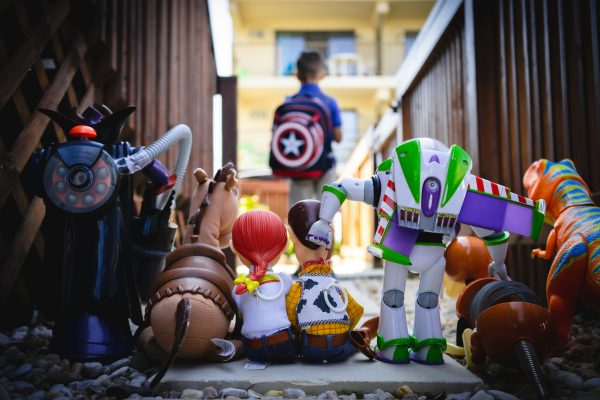
Host a Toy and Book Swap
Organising a toy and book swap is an excellent way to promote reuse and reduce waste. Gather friends and neighbours for a fun swapping event where children can trade their gently used toys and books for new treasures. This activity not only teaches kids the value of reusing items but also fosters a sense of community. Another great option to explore is the Lewisham Toy Library, which offers an affordable and sustainable alternative to getting new toys. Members can choose from a vast selection of over 4,000 toys, borrowing up to five at a time for up to four weeks. This system allows children to enjoy a variety of toys without the need for constant new purchases, supporting both environmental sustainability and continuous play.
Create a Wildlife Garden
Involve your children in planning and transforming a part of your garden into a wildlife haven can be an exciting and educational project. Planting native flowers, installing a small pond, or creating log piles can attract various wildlife species such as birds, butterflies, and frogs. Teach them about the importance of biodiversity and how each element of the garden supports different wildlife. Maintaining the garden throughout the summer can provide continuous learning and enjoyment.

Organise Upcycling Craft Days
Upcycling crafts are a fantastic way to spark creativity while teaching the importance of sustainability and reusing materials. Gather household items like old furniture, clothes, fabric scraps, and bottles and challenge your children to create something new and useful. Ideas include:
- Turning wooden pallets into coffee tables, benches, or even bed frames.
- Turning old dressers into stylish TV stands.
- Old broken or unused chairs can be turned into garden planters.
- Jeans can be cut and turn into shorts, and the leftover fabric can be used for other crafts.
- Wine bottles can be painted and used as vases or candle holders.
- Plastic bottles can be cut and used for plant cloche.
One of the most exciting and sustainable projects that will be very educating can be building a solar oven. Build a solar oven with a cardboard box, aluminium foil, and plastic wrap. Use it to cook simple treats like chocolate digestives with marshmallows, teaching kids about renewable energy. This hands-on project combines science with fun and introduces children to the concept of using solar power.
Visit a Local Farm
Visiting a local farm can be a delightful and educational experience for children. Many farms offer tours where kids can learn about sustainable farming practices, animal care, and the importance of local food production. This can foster a connection to food sources and an understanding of the benefits of supporting local agriculture. One such fantastic destination is Mudchute Park and Farm, located in the heart of East London. Mudchute Park and Farm provides hands-on experiences for children, from feeding animals to exploring sustainable environment. This urban farm also hosts educational workshops and seasonal events, making it a perfect place for kids to learn about farming and nature in an engaging and interactive setting.
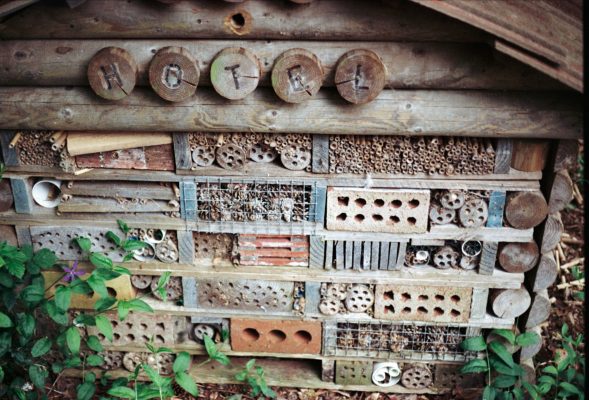
Build a Bug Hotel
Building a bug hotel is a simple yet effective way to attract beneficial insects to your garden. Use natural materials like twigs, leaves, bark, and stones to create a welcoming habitat for insects such as ladybirds, bees, and beetles. This project can teach children about the vital roles these creatures play in our ecosystem, such as pollination and pest control. Inspired by innovative solutions like those implemented by BCLP, you can also introduce a wormery in your garden. A wormery can turn kitchen food waste into nutrient-rich compost, demonstrating a commitment to recycling and resource recovery. By using worms to break down organic matter, children can observe how food scraps are transformed into valuable fertiliser, reducing the demand for virgin materials and supporting a circular economy. This dual approach ensures that most of the waste is repurposed to benefit the planet, enhancing sustainability.
DIY Bird Feeders
Creating bird feeders using recycled materials is a fun and educational activity. You can use toilet paper rolls, spread peanut butter on them, and roll them in birdseed. Hang these feeders in your garden and observe the various bird species that visit. This activity not only teaches kids about recycling but also helps them learn about local wildlife.
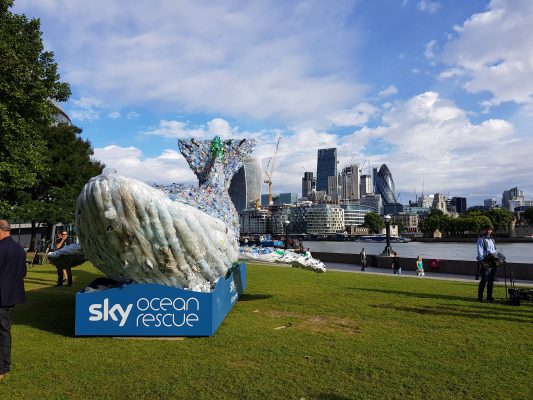
Beach or Park Clean-Up
Organise a local clean-up event. Provide gloves and bags for picking up litter. This teaches kids about the impact of waste on the environment and the importance of keeping our spaces clean. It also instils a sense of responsibility and community service.
Bywaters marked World Oceans Day by highlighting the severe impact of plastic pollution on our seas. Our 10-metre-long whale sculpture, ‘Plasticus’, symbolises the staggering 250kg of plastic that enters our oceans every second. This pollution has devastating effects on marine wildlife, with an estimated 100,000 sea mammals falling victim to marine plastic pollution each year.
Green Transportation Challenges & Local Exploration
Beyond home-based crafts and nature walks, summer is the perfect time to explore your local area using eco-friendly transportation and turn it into a fun challenge!
The “Walk/Bike/Scooter Your Neighbourhood” Challenge:
Encourage your kids to explore parts of your town or city they haven’t seen before, but with a twist: they can only travel by walking, biking, or scootering. Give them a “mission,” like finding the oldest tree in the park, locating a specific public art piece, or discovering a new independent shop. Provide a map (or encourage them to draw one) and a checklist of things to spot. This activity reduces reliance on cars, promotes physical activity, and helps children appreciate their local environment and community from a sustainable perspective. You can even set up “pit stops” with reusable water bottles and homemade snacks to reinforce healthy, eco-conscious habits. This transforms a simple outing into a genuine adventure while minimising your carbon footprint.
These sustainable activities not only keep your kids entertained but also educate them about the importance of sustainability and caring for the environment. Have fun, stay safe, and make this summer an eco-friendly adventure!
More posts:
Black History Month 2025
Celebrate Black History Month in the UK by exploring the unsung heroes of environmental justice and sustainability. Acknowledge the critical contributions of Black individuals shaping a healthier future.
Read moreNet Zero White Paper 2025
Bywaters’ Net Zero 2025 White Paper and their commitment to a more sustainable future.
Read moreYour Ultimate Guide to Office Recycling
Improve the recycling in your office building today, by following some of these quick and easy tips
Read more


